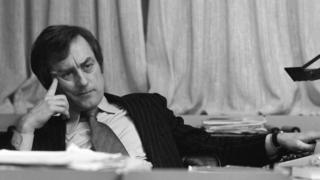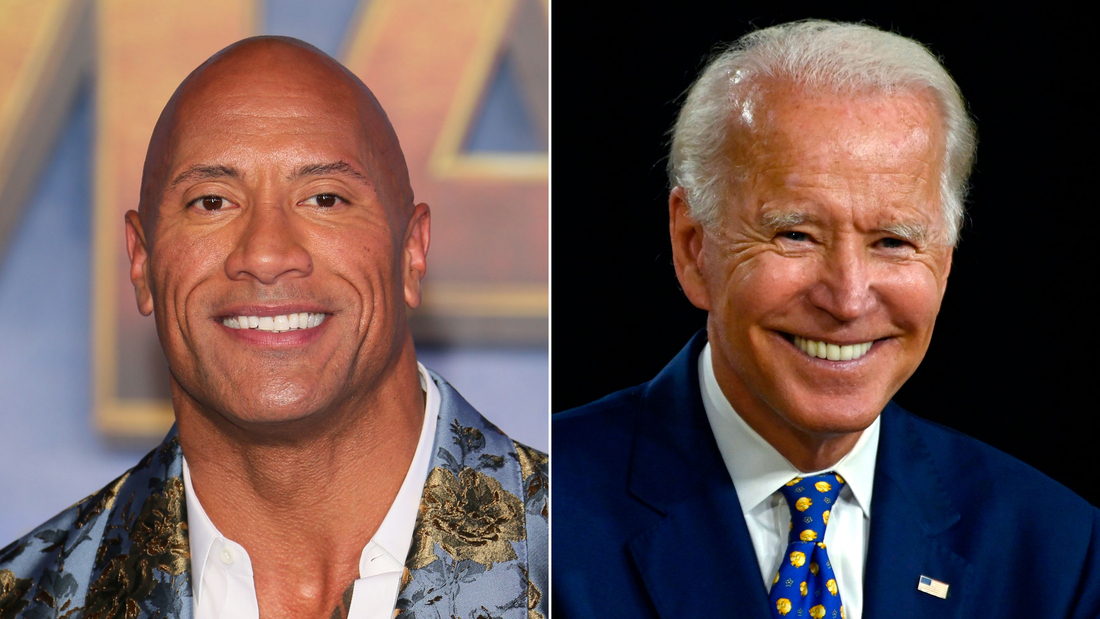 Image copyright
Getty Images
Image copyright
Getty Images
Former Sunday Times editor Sir Harold Evans has died at the age of 92.
The British-American journalist, who led an investigation into the drug Thalidomide, died of heart failure in New York, his wife Tina Brown said.
His 70-year career also saw him work as a magazine founder, book publisher, author and - at the time of his death - Reuters' editor-at-large.
Sir Harold was editor of the Sunday Times for 14 years and oversaw many campaigns in that time.
He then went on to become the founding editor of Conde Nast Traveller magazine and later president of the publishing giant, Random House.
One of Britain and America's best-known journalists, Sir Harold also wrote several books about the press and in 2003 was given a knighthood for his services to journalism.
A year earlier, a poll by the Press Gazette and the British Journalism Review named him the greatest newspaper editor of all time.
Image copyright Reuters Image caption Sir Harold Evans was appointed editor-at-large at the Reuters news agency in 2011Sir Harold forged his reputation as editor of the Northern Echo in the 1960s, where his campaigns resulted in a national screening programme for cervical cancer and a posthumous pardon for Timothy Evans, wrongly hanged for murder in 1950.
During his tenure as editor of the Sunday Times, his notable campaigns included fighting the Distillers Company for greater compensation for the victims of Thalidomide.
But he said campaigns should be selective, and he deplored what he saw as the invasion of privacy by the British tabloid press.
Thalidomide, which first appeared in the UK in 1958, was prescribed to expectant mothers to control the symptoms of morning sickness.
However, hundreds of these mothers in Britain, and many thousands across the world, gave birth to children with missing limbs, deformed hearts, blindness and other problems.
Sir Harold's campaign, launched in 1972, eventually forced the UK manufacturer, Distillers Company - at the time the Sunday Times's biggest advertiser - to increase the compensation received by victims.
He also fought a legal injunction to stop the paper revealing the drug's developers had not gone through the proper testing procedures.
Speaking about his campaigning in a 2010 interview with the Independent, Sir Harold said: "I tried to do - all I hoped to do - was to shed a little light. And if that light grew weeds, we'd have to try and pull them up."
What is Thalidomide?
Thalidomide was developed by German pharmaceutical company Grunenthal It was launched on 1 October 1957 First marketed as a sedative, it was then given to pregnant women to combat morning sickness As many as 10,000 babies of these women were born worldwide with deformitiesImage copyright Getty Images Image caption Sir Harold and his second wife Tina Brown pictured in 1989, after their move to New York City
Sir Harold later edited the Times but left in 1981 following a public falling-out with the paper's owner, Rupert Murdoch, over editorial independence.
Writing about his relationship with Murdoch, he described his decision not to "campaign against" Murdoch's takeover of the papers as "the worst in my professional career".
He added: "My principal difficulty with Murdoch was my refusal to turn the paper into an organ of Thatcherism. That is what the Times became."
Harry Evans personified not only the noblest possibilities of journalism, but of social mobility in the 20th Century too.
Born into what he called "the respectable working-class", his route to national and international acclaim via the streets of Manchester and Darlington - the latter as editor of The Northern Echo - is sadly a route few take today.
He embodied the most romantic ideal of an editor: a humble hack taking on mighty forces through the dogged pursuit of truth.
Though he later fell out with Rupert Murdoch, and never forgave him, in his 14 years at the helm of the Sunday Times he redefined journalism itself.
He was a master craftsman, in a trade where practical wisdom was precious and vital; and he combined a flair for layout, projection and design with a remarkable nose for a story, particularly those with human suffering at their heart.
But above all he was brave. During his reign, it seemed no super-rich bully or powerful government could intimidate him.
In our era of information overload, diminished trust in journalism, and fewer people willing to pay for news, the nostalgia for what he represented is impossible to resist.
As he put it himself in the title of his wonderful memoir from 2009, he reached the top in Vanished Times.
He had the resources, and the time, to hold power to account - and he did uniquely well. Mixed with his charm and sheer decency, this put journalism itself in a debt to him that will never be fully serviced.
Journalists have paid tribute to his campaigning work on the thalidomide scandal and other injustices. Alan Rusbridger, former editor of the Guardian, said he was a "master craftsman of journalism" who "was the editor we all wanted to be".
Author Robert Harris told BBC Radio 4's Today programme that Sir Harold was an outsider coming in to the Sunday Times, the "son of a railway man who wanted to take on the establishment".
"He believed in ordinary people and that newspapers could stand up for them. He saw newspapers as instruments of social justice on their behalf," Mr Harris said.
"He really was the great British post-war journalist, no question."
The BBC's John Simpson called Sir Harold a "magnificent editor, a wise counsellor and a good and inspiring friend".
'Giant among journalists'
Former Financial Times editor Lionel Barber described him as "a brilliant, generous newspaperman and mentor, the finest editor of his generation".
Ian Murray, executive director of the Society of Editors, said: "Sir Harold Evans was a giant among journalists who strove to put the ordinary man and woman at the heart of his reporting."
And Glen Harrison, a thalidomide survivor and deputy chairman of the campaign group Thalidomide UK, described Sir Harold as "an outstanding human being for our cause".
After leaving the Times, Sir Harold and his second wife, Tina Brown, moved to New York.
There she edited Vanity Fair and the New Yorker, while he became founding editor of Conde Nast magazine and later president of Random House.
In 2011, at the age of 82, Sir Harold was appointed editor-at-large at Reuters, the organisation's editor-in-chief describing him as "one of the greatest minds in journalism".
Sir Harold was born on 28 June 1928 in Eccles, Lancashire, now in Greater Manchester, the son of Welsh parents.

 5 years ago
1248
5 years ago
1248 

